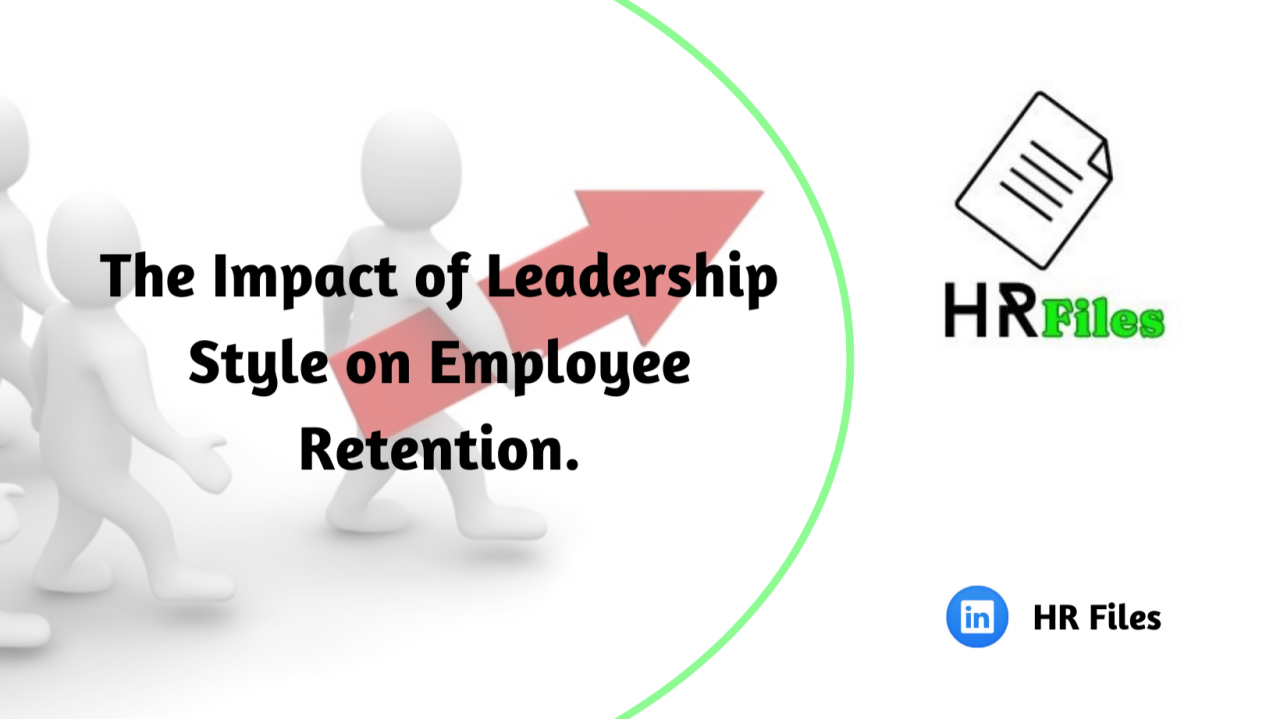The Impact Of Effective Middle Management On Employee Retention And Productivity

Table of Contents
How Effective Middle Management Boosts Employee Retention
High employee turnover is costly and disruptive. Effective middle management plays a crucial role in mitigating this by fostering a positive and supportive work environment and implementing robust onboarding and training programs.
Fostering a Positive and Supportive Work Environment
A positive work environment is a cornerstone of employee retention. Effective middle managers cultivate this by:
- Open communication and regular feedback sessions: Regular check-ins, both formal and informal, allow managers to understand employee concerns, provide constructive feedback, and build strong working relationships. This fosters a culture of transparency and trust.
- Mentorship and career development opportunities: Investing in employees' growth demonstrates commitment and increases loyalty. Mentorship programs and opportunities for professional development show employees that their future is valued within the organization.
- Recognition and appreciation of employee contributions: Acknowledging individual and team achievements, both big and small, boosts morale and motivates employees to continue their excellent work. Regular recognition, whether through verbal praise, awards, or bonuses, is vital.
- Creating a culture of trust and respect: Employees are more likely to stay with an organization where they feel valued and respected. This requires building a culture of psychological safety where employees feel comfortable sharing their ideas and concerns without fear of retribution.
- Addressing employee concerns promptly and fairly: Responding quickly and effectively to employee concerns demonstrates respect and commitment to their well-being. This includes addressing issues of fairness and equity within the team.
Reducing Employee Turnover Through Effective Onboarding and Training
Effective onboarding and training are crucial for employee retention. Middle managers play a vital role in ensuring this process is smooth and effective.
- Comprehensive onboarding programs integrating new hires seamlessly: A structured onboarding program that clearly outlines expectations, introduces team members, and provides the necessary resources ensures a positive initial experience.
- Regular training and development opportunities to enhance skills and knowledge: Continuous learning opportunities keep employees engaged and enhance their skills, increasing their value to the organization and their job satisfaction.
- Mentorship programs to aid in career progression and knowledge transfer: Pairing new hires with experienced mentors provides valuable guidance and support, accelerating their growth and integration into the team.
- Clear expectations and performance standards: Setting clear expectations and performance standards from the outset prevents misunderstandings and ensures employees know what is expected of them.
- Providing resources and support for employee growth: Providing the necessary tools, resources, and support allows employees to thrive and reach their full potential within the organization.
The Link Between Effective Middle Management and Increased Productivity
Effective middle management is directly linked to increased productivity. This is achieved through empowering employees, improving teamwork, and driving innovation.
Empowering Employees and Delegating Effectively
Empowered employees are more productive. Effective middle managers achieve this by:
- Trusting employees with responsibility and autonomy: Giving employees ownership of their work increases engagement and motivation, leading to higher productivity.
- Delegating tasks effectively based on individual skills and strengths: Delegation allows managers to focus on strategic tasks while maximizing employee utilization and skill development.
- Providing the necessary resources and support for task completion: Ensuring employees have the tools and support they need eliminates bottlenecks and facilitates efficient task completion.
- Clear communication of goals and expectations: Clearly defined goals and expectations minimize confusion and ensure everyone is working towards the same objectives.
- Regular progress check-ins and constructive feedback: Regular check-ins allow for early identification of problems and provide opportunities for constructive feedback and course correction.
Improving Teamwork and Collaboration
Teamwork and collaboration are essential for productivity. Effective middle managers foster this by:
- Promoting a collaborative and team-oriented work environment: Creating a culture of collaboration encourages knowledge sharing and mutual support, improving overall team effectiveness.
- Facilitating effective communication and information sharing among team members: Open and transparent communication ensures everyone is on the same page and prevents misunderstandings.
- Encouraging open dialogue and constructive conflict resolution: Addressing conflicts constructively prevents them from escalating and damaging team morale.
- Celebrating team successes and recognizing individual contributions: Celebrating achievements strengthens team cohesion and motivates individual employees.
- Providing training on teamwork and collaboration skills: Investing in teamwork training enhances employees' ability to collaborate effectively.
Driving Innovation and Problem-Solving
Innovative and problem-solving teams are highly productive. Effective middle managers encourage this by:
- Encouraging creativity and innovative thinking: Creating a safe space for employees to share ideas and experiment with new approaches fosters innovation.
- Providing employees with opportunities to contribute ideas and solutions: Giving employees a voice in decision-making increases their engagement and fosters a culture of ownership.
- Implementing effective problem-solving strategies: Equipping employees with effective problem-solving techniques allows them to address challenges proactively.
- Fostering a culture of continuous improvement: Continuously seeking ways to improve processes and workflows enhances efficiency and productivity.
- Recognizing and rewarding innovative contributions: Acknowledging and rewarding innovation motivates employees to continue seeking new and better ways of doing things.
Strategies for Developing Effective Middle Management
Investing in the development of middle managers is crucial for a high-performing organization.
Investing in Leadership Training and Development
Developing strong leadership skills in middle management is paramount. This involves:
- Providing middle managers with training in leadership, communication, and management skills: Formal training programs enhance their skills and equip them to effectively lead their teams.
- Offering opportunities for professional development and continuing education: Continuous learning ensures middle managers stay abreast of best practices and emerging trends.
- Mentorship programs to guide and support emerging leaders: Mentorship provides valuable guidance and support, accelerating the development of future leaders.
- 360-degree feedback to provide a comprehensive view of leadership performance: Feedback from multiple sources provides a holistic view of leadership effectiveness, identifying both strengths and areas for improvement.
- Regular performance evaluations focused on leadership effectiveness: Regular evaluations ensure middle managers are held accountable for their leadership performance and provides opportunities for growth.
Creating a Supportive and Empowering Management Culture
A supportive environment empowers middle managers to succeed. This involves:
- Establishing clear expectations for middle management roles and responsibilities: Clear expectations minimize confusion and ensure alignment with organizational goals.
- Providing middle managers with the authority and resources to effectively manage their teams: Empowering middle managers allows them to make decisions and take action without excessive oversight.
- Encouraging open communication and feedback between middle management and senior leadership: Open communication fosters trust and allows for effective problem-solving and collaboration.
- Promoting a culture of trust and collaboration: A collaborative environment encourages knowledge sharing and mutual support among middle managers.
- Recognizing and rewarding effective middle management practices: Acknowledging and rewarding successful middle management practices reinforces positive behaviors and motivates ongoing improvement.
Conclusion
Effective middle management is not merely a component of a successful organization; it is a cornerstone. Investing in and developing effective middle management is crucial for driving employee retention, boosting productivity, and achieving long-term organizational success. By implementing the strategies outlined above, businesses can cultivate a thriving workplace where employees feel valued, empowered, and motivated to excel. Don't underestimate the power of effective middle management; prioritize its development to reap the rewards of increased employee retention and productivity. Start building your team of effective middle managers today!

Featured Posts
-
 The Disappearance Cases Theories And Investigations
May 26, 2025
The Disappearance Cases Theories And Investigations
May 26, 2025 -
 Rtbf La Ministre Galant Exige La Transparence Sur Le Nouveau Siege
May 26, 2025
Rtbf La Ministre Galant Exige La Transparence Sur Le Nouveau Siege
May 26, 2025 -
 Adios A Eddie Jordan Ultima Hora Sobre Su Fallecimiento
May 26, 2025
Adios A Eddie Jordan Ultima Hora Sobre Su Fallecimiento
May 26, 2025 -
 Relay Sweep Propels T Bird Girls To Home Invite Win
May 26, 2025
Relay Sweep Propels T Bird Girls To Home Invite Win
May 26, 2025 -
 Choosing The Best Nike Running Shoes For 2025 A Comprehensive Review
May 26, 2025
Choosing The Best Nike Running Shoes For 2025 A Comprehensive Review
May 26, 2025
